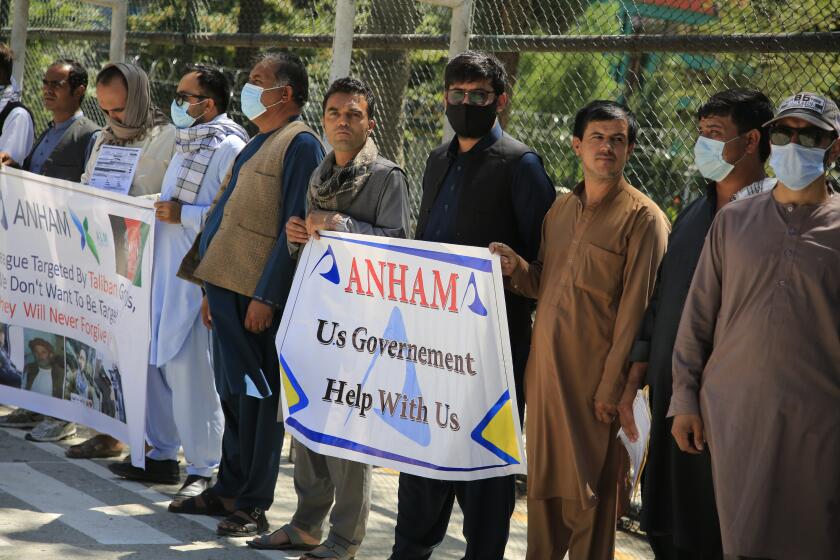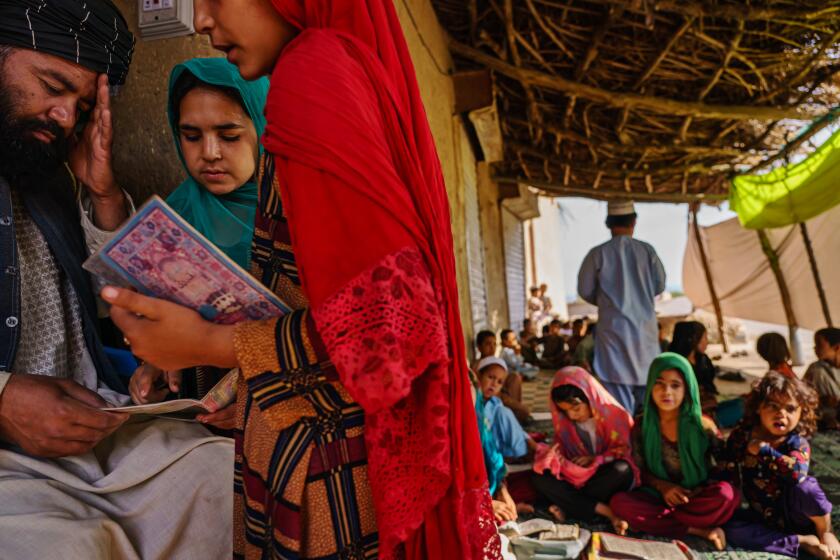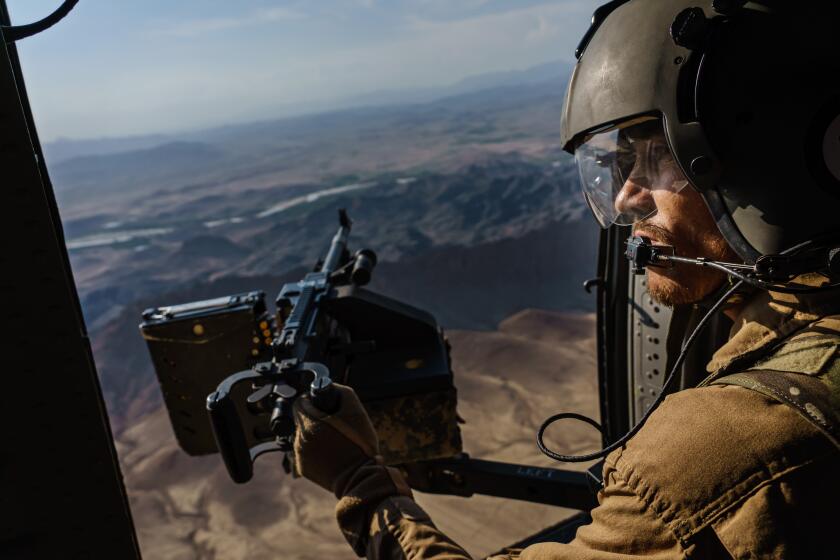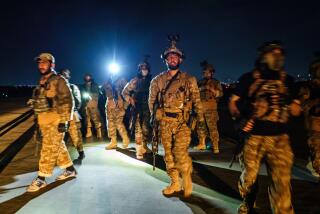Taliban captures most of Helmand province’s capital in southern Afghanistan
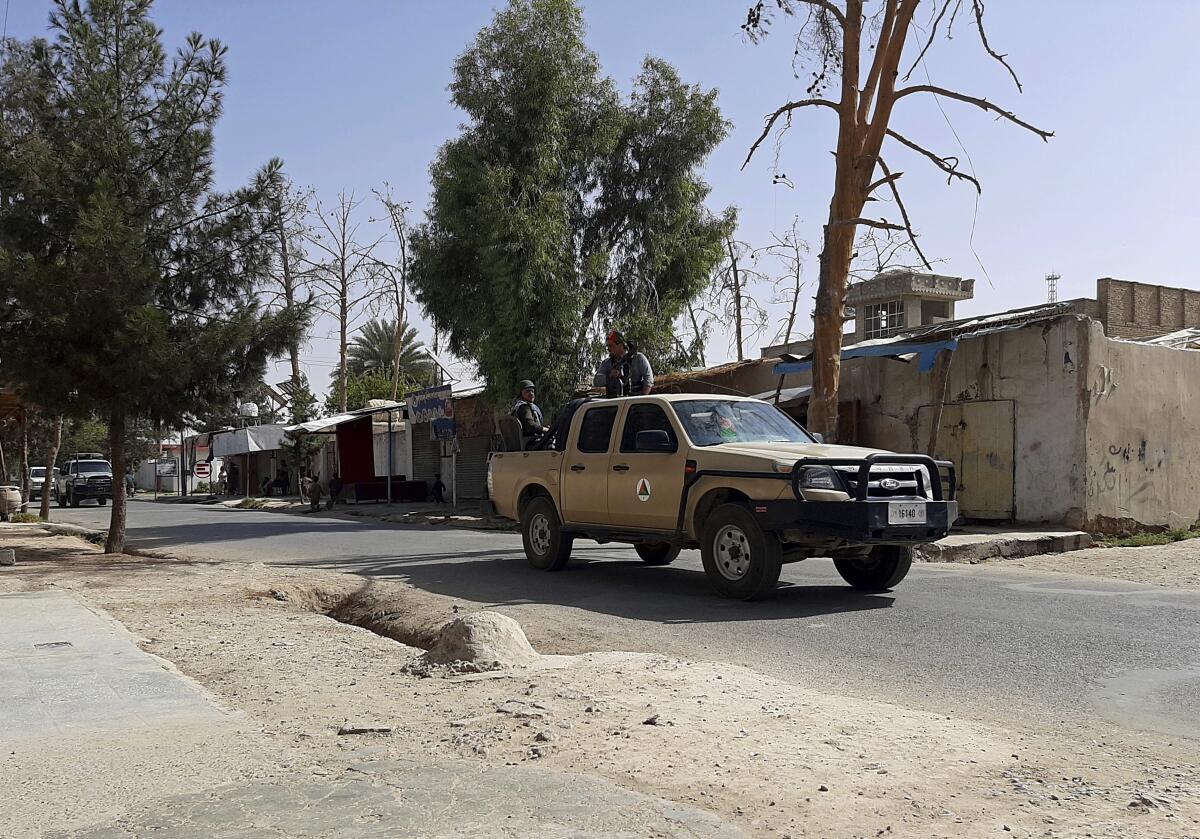
KABUL, Afghanistan — The Taliban furthered its advances in southern Afghanistan on Tuesday, capturing nine out of 10 districts of Helmand province’s capital, Lashkar Gah, residents and officials said. Afghan government forces launched airstrikes, backed by the U.S., in a desperate effort to defend the city.
The fall of Lashkar Gah would be a major turning point in the offensive that the Taliban has waged over recent months as U.S. and NATO forces complete their pullout from the war-torn country. It would also be the first provincial capital captured by the Taliban in years.
Residents of the city, speaking to the Associated Press by telephone, said the fighting had them trapped, hunkered down inside their homes and unable to step out for basic supplies. They said Taliban fighters were out openly in the streets, and that all but one Lashkar Gah district was under Taliban control.
Elite Afghan military commando units were dispatched from Kabul to aid Afghan forces as the government held on to key government buildings, including the local police and army headquarters.
Majid Akhund, deputy chairman of the Helmand provincial council, confirmed that the Taliban was in control of nine Lashkar Gah districts and also the city’s TV and radio station, which had both gone off the air.
The Afghan forces commander for Helmand, Gen. Sami Sadat, in an audio message shared with journalists Tuesday, urged residents in neighborhoods captured by the Taliban to evacuate immediately, though he did not clarify how they could do that amid the ongoing clashes. The message was an indication that more airstrikes were planned.
The Biden administration will allow refugee visas for more Afghans at risk for helping the U.S. as Taliban violence grows and American troops withdraw.
“Please evacuate your families from your homes and their surroundings,” Sadat said. “We will not leave the Taliban alive. ... I know it’s hard. ... We do it for your future. Forgive us if you get displaced for few days. Please evacuate as soon as possible.”
Lashkar Gah is one of three provincial capitals under siege by the Taliban as they stepped up their onslaught against government forces. In recent months, the Taliban swept through dozens of districts across the country, many in remote and rural, sparsely populated areas.
Afghan troops in those battles often surrendered or pulled out with barely a fight, frequently lacking supply replenishments and reinforcements. Over the last weeks, the Taliban has also captured several lucrative border crossings with Iran, Pakistan and Tajikistan.
Most recently, the Taliban has turned its guns on provincial capitals as the withdrawal of the U.S. and NATO forces is now more than 95% complete. The final U.S. and NATO troops are expected to be out of Afghanistan by Aug. 31.
As U.S. forces pull out from Afghanistan, the Taliban is in the ascendant — and threatening to retake the city that was its former spiritual capital.
The two other provincial capitals under siege are in the neighboring province of Kandahar, also in the south, and in western Herat province.
Afghan President Ashraf Ghani on Monday blamed the hasty withdrawal of U.S. and NATO troops for the deteriorating security situation, while analysts say deep corruption and poor training has left Afghan forces overwhelmed, leaving the elite commando units as the only bulwark against the advancing Taliban.
Afghanistan’s air force has been seriously harmed by the American and NATO withdrawal, which included contractors who had maintained the fleet of fighter aircraft. Washington’s watchdog overseeing U.S. taxpayer dollars spent in Afghanistan said the Afghan aircraft are flying 25% longer than they should before receiving maintenance work.
In Herat, the capital of the province of the same name, Afghan forces appeared Tuesday to be able to push the Taliban back, with the insurgents on the edge of the city. Also, Herat city’s civilian airport reopened.
Start your day right
Sign up for Essential California for the L.A. Times biggest news, features and recommendations in your inbox six days a week.
You may occasionally receive promotional content from the Los Angeles Times.
The United Nations has repeatedly decried the rise in civilian casualties inflicted by both sides in the increasingly brutal conflict. The U.N. mission in a tweet Tuesday appealed for a quick end to the fighting in heavily populated urban areas. In the last three days, the U.N. said 10 civilians have been killed in Lashkar Gah and 85 wounded. In southern Kandahar, at least five civilians were killed and 42 wounded.
Thousands more have been displaced, the U.N. said. Lashkar Gah residents said airstrikes inside the city were driving people from their homes.
“With any bomb that hits the city, my 13- year-old son jumps and yells,” said Mohammad Khan. He had moved half of his family out of the Lashkar Gah and was trying to get the other half out before the fighting pinned him down.
Another Lashkar Gah resident, Nizamuddin, who like many Afghans uses only one name, said he was hiding with his family in their home and was too afraid to step out.
A ride-along with the Afghan Air Force
The U.S. and other world leaders have warned the Taliban against a military takeover of Afghanistan, saying that the group would become an international pariah again if it tried to take power by force.
When it last ruled Afghanistan, the Taliban government was recognized by only three countries: Pakistan, Saudi Arabia and the United Arab Emirates.
More to Read
Sign up for Essential California
The most important California stories and recommendations in your inbox every morning.
You may occasionally receive promotional content from the Los Angeles Times.
